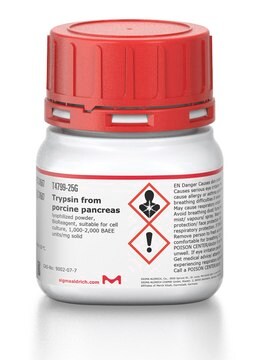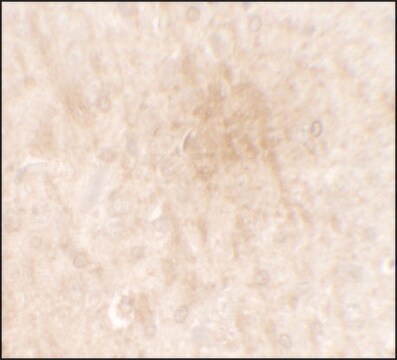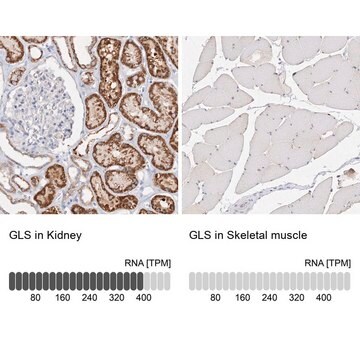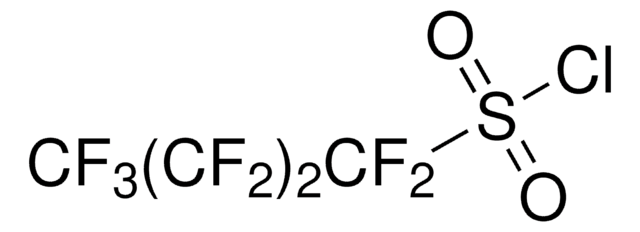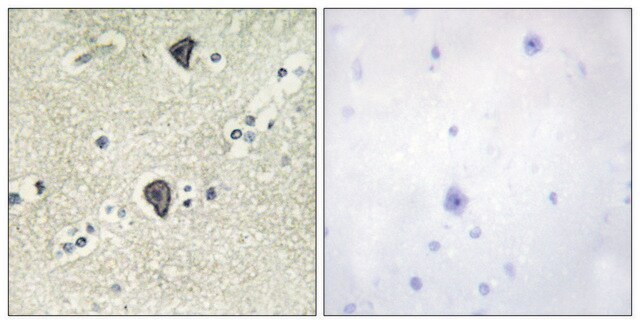推荐产品
生物源
rabbit
共軛
unconjugated
抗體表格
affinity isolated antibody
抗體產品種類
primary antibodies
無性繁殖
polyclonal
形狀
buffered aqueous solution
分子量
antigen 110-120 kDa (doublet)
物種活性
human
技術
immunohistochemistry (formalin-fixed, paraffin-embedded sections): 1:250 using Trypsin-digested, human and animal tissue sections
western blot: 1:1,000 using whole cell extract of transfected 293T cells expressing recombinant human FGFR-3
UniProt登錄號
運輸包裝
dry ice
儲存溫度
−20°C
目標翻譯後修改
unmodified
基因資訊
human ... FGFR3(2261)
一般說明
Fibroblast Growth Factor Receptor-3 (FGFR 3) is a protein that belongs to Tyr protein kinase family and is expressed in various fetal and adult human and animal tissues. It plays a vital role in inducing apoptosis in chondrogenic ATDC5 cells. It also facilitates cell proliferation and differentiation.
特異性
The antibody reacts specifically with FGFR-3 in lysates of transfected cells. No reaction with FGFR-1 and FGFR-2 is detected.
免疫原
synthetic peptide corresponding to amino acids 792-806 of the cytoplasmic region of human FGFR-3 with N-terminal added lysine.
應用
Anti-Fibroblast Growth Factor Receptor-3, cytoplasmic antibody can be used in immunohistochemistry (diluted 1:250) using Trypsin-digested, human and animal tissue sections for identification of FGFR-3. It can also be used in immunoprecipitation.
Applications in which this antibody has been used successfully, and the associated peer-reviewed papers, are given below.
Immunohistochemistry (1 paper)
Western Blotting (1 paper)
Immunohistochemistry (1 paper)
Western Blotting (1 paper)
生化/生理作用
Fibroblast Growth Factor Receptor-3 (FGFR-3) plays a vital role in inducing apoptosis in chondrogenic ATDC5 cells. It also facilitates cell proliferation and differentiation. Mutations in the FGFR-3 gene leads to Wolf-Hirshhorn syndrome (growth failure, mental retardation, cardiac and bone malformations) and achondroplasia.
外觀
Solution in 0.01 M phosphate buffered saline, pH 7.4, containing 1% bovine serum albumin and 15 mM sodium azide.
免責聲明
Unless otherwise stated in our catalog or other company documentation accompanying the product(s), our products are intended for research use only and are not to be used for any other purpose, which includes but is not limited to, unauthorized commercial uses, in vitro diagnostic uses, ex vivo or in vivo therapeutic uses or any type of consumption or application to humans or animals.
未找到合适的产品?
试试我们的产品选型工具.
儲存類別代碼
10 - Combustible liquids
水污染物質分類(WGK)
WGK 2
閃點(°F)
Not applicable
閃點(°C)
Not applicable
個人防護裝備
Eyeshields, Gloves, multi-purpose combination respirator cartridge (US)
Multiple congenital malformations of Wolf-Hirschhorn syndrome are recapitulated in Fgfrl1 null mice
Catela C, et al.
Disease models & mechanisms, 2(5-6), 283-294 (2009)
Wolfgang Jäger et al.
Oncotarget, 6(25), 21522-21532 (2015-06-05)
Optimal animal models of muscle invasive bladder cancer (MIBC) are necessary to overcome the current lack of novel targeted therapies for this malignancy. Here we report on the establishment and characterization of patient-derived primary xenografts (PDX). Patient tumors were grafted
Davide Komla-Ebri et al.
The Journal of clinical investigation, 126(5), 1871-1884 (2016-04-12)
Achondroplasia (ACH) is the most frequent form of dwarfism and is caused by gain-of-function mutations in the fibroblast growth factor receptor 3-encoding (FGFR3-encoding) gene. Although potential therapeutic strategies for ACH, which aim to reduce excessive FGFR3 activation, have emerged over
Yongjun Yin et al.
Disease models & mechanisms, 9(5), 563-571 (2016-04-09)
Activating mutations in fibroblast growth factor receptor 3 (FGFR3) have been identified in multiple types of human cancer and in congenital birth defects. In human lung cancer, fibroblast growth factor 9 (FGF9), a high-affinity ligand for FGFR3, is overexpressed in
Daisuke Harada et al.
Bone, 41(2), 273-281 (2007-06-15)
The most frequent type of rhizomelic dwarfism, achondroplasia (ACH), is caused by mutations in the fibroblast growth factor receptor 3 (FGFR3) gene. Mutations in FGFR3 result in skeletal dysplasias of variable severity, including mild phenotypic effects in hypochondroplasia (HCH), severe
我们的科学家团队拥有各种研究领域经验,包括生命科学、材料科学、化学合成、色谱、分析及许多其他领域.
联系技术服务部门



